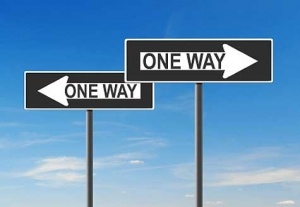by Jacob Sullum
Citizens Commission on Human Rights
Several interesting articles about the upcoming revisions to psychiatry’s diagnostic manual, for the new DSM 5.
The next edition of the Diagnostic and Statistical Manual of Mental Disorders, scheduled to be published a year from now, is expected to include a looser definition of addiction that will qualify millions more drinkers, illegal drug users, and participants in other pleasurable activities for psychiatric diagnoses. The upshot will be a lot more spending by taxpayers and private insurers on rarely effective “treatment” for these putative diseases, along with expanded excuses for depriving people of their freedom and relieving them of their responsibility.
DSM 5 Could Mean 40% of College Students Are Alcoholics
by Maia Szalavitz
healthland.time.com
If the change is finalized, anyone whose drinking or drug use creates any problems will essentially be an addict or alcoholic with a “mild” case of the disease and presumably, therefore, not someone who can learn control over his habits.
While researchers have been encouraging the widespread adoption of “brief interventions” and other techniques that don’t require abstinence or a label— with great success— this change could swing the field in the opposite direction.
And that poses a huge problem, particularly for adolescents and young adults with mild problems who may be pushed to adopt an addict identity and to see themselves as having no way to control their drinking or drug use if they ever “relapse.” Rather than empowering those who do have control to use it, these programs essentially tell kids that if they ever have just one drink or puff on a joint, they’re lost.
The New York Times article points out the self-interest that may be involved…
Addiction Diagnoses May Rise Under Guideline Changes
“The ties between the D.S.M. panel members and the pharmaceutical industry are so extensive that there is the real risk of corrupting the public health mission of the manual,” said Dr. Lisa Cosgrove, a fellow at the Edmond J. Safra Center for Ethics at Harvard, who published a study in March that said two-thirds of the manual’s advisory task force members reported ties to the pharmaceutical industry or other financial conflicts of interest. […]
Dr. O’Brien, who led the addiction working group, has been a consultant for several pharmaceutical companies, including Pfizer, GlaxoSmithKline and Sanofi-Aventis, all of which make drugs marketed to combat addiction.
He has also worked extensively as a paid consultant for Alkermes, a pharmaceutical company, studying a drug, Vivitrol, that combats alcohol and heroin addiction by preventing craving. He was the driving force behind adding “craving” to the new manual’s list of recognized symptoms of addiction. […]
Seems like such a win-win change to the DSM. The Drug Czar wins because with all these new people “needing treatment” it justifies his emphasis on treatment. The drug companies win because they get to drug people up on drugs for which they get paid. The treatment industry wins because they get a ton of new people “needing treatment” that aren’t difficult cases, and with health care covering much of it, they can just rake in the dough without really having to do anything.
As far as I can tell, the only ones who lose are, well, the people.
Read the Full Article Here: http://www.cchrint.org/2012/05/15/psychiatrydsmaddiction/ [2]

